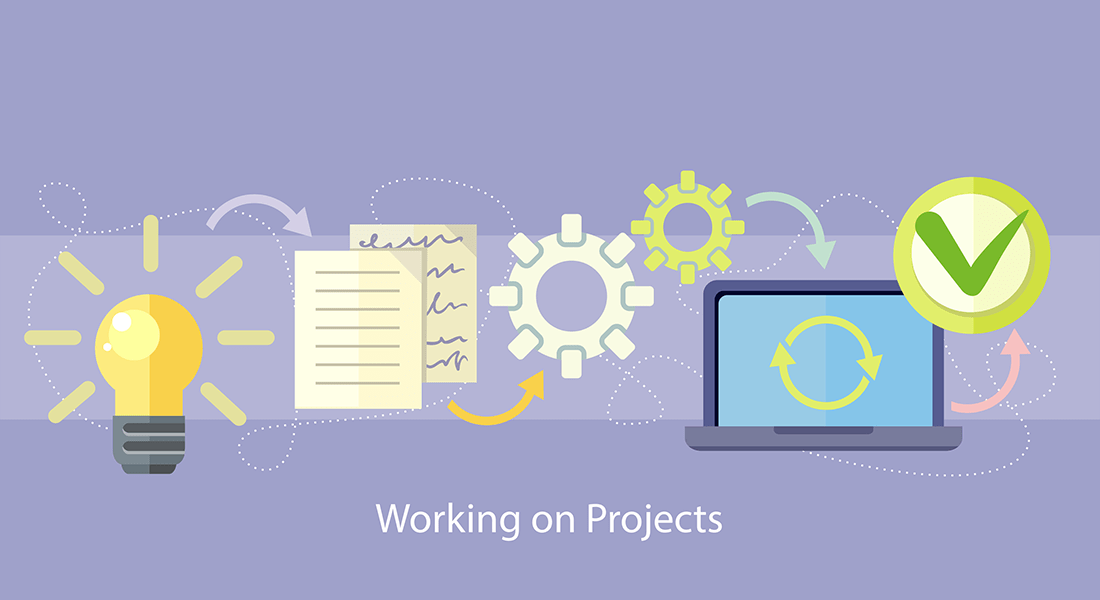11 Must Read Books for E-learning Professionals

“Always do more than is required of you.”
– George S. Patton
Successful e-learning professionals are in constant pursuit of knowledge. They thirst for knowledge that will help them come up with solutions for learning needs. And they always try to learn more about how learners acquire knowledge through the online medium.
To make this pursuit a little easy, we’ve compiled a list of the top 10 books in the field of e-learning for you. Go through our reviews and see what suits your need.
1. Design for How People Learn (2nd Edition) (Voices That Matter) – Julie Dirksen
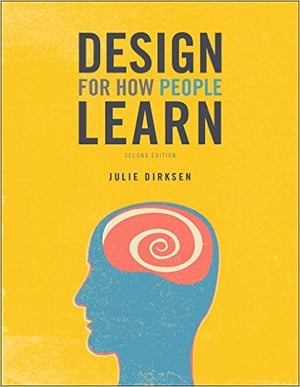
This book provides a brief overview of things involved in designing great learning experiences.
It helps you:
- Identify the gaps of learners i.e., where they are and where they need to be
- Understand who learners are
- Determine your goal with accuracy
- Learn how the mind works to help focus and retain information
- Come up with strategies to make the learning experience as effective as possible
2. The Gamification of Learning and Instruction – Karl M. Kapp
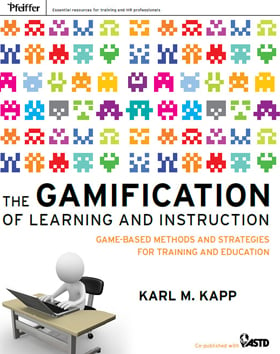
This book explores gamification in detail. It explains how:
- To use games and gamification techniques for training and education
- To design effective and meaningful online courses using game mechanics
- To match different game strategies to the types of learning content
- Gamification techniques can be used to increase learning and retention
- To manage the development of gamified training
Finally, this book illustrates how instructional design thinking can be combined with game concepts to create an engaging and interactive fun-like learning experience for learners.
3. Even Ninja Monkeys Like to Play – AndrzejMarczewski
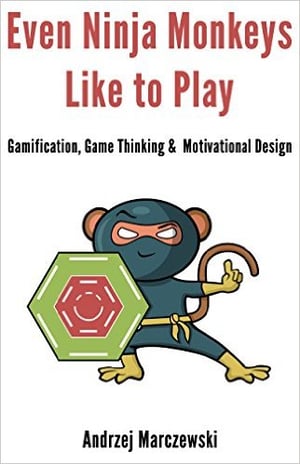
It’s a guide to using gamification and the theories and concepts on which it is built. This book offers detail insights into the following:
- Game thinking and its four segments
- Game mechanics and its application
- Gamification mechanics and elements
- A few design tips
- Modeling systems
4. ISD from the Ground Up – Chuck Hodell

It is a handbook for instructional designers This book presents information required to practice ISD skills. You will also learn about:
- Analyzing content and systems,both generally and instructionally
- Defining and working with the ADDIE model
- Mastering objectives and evaluation tasks
- Creating design plans and lesson plans
- Advanced ISD topics and some tips for success
5. Facilitator’s and Trainer’s Toolkit – Artie Mahal
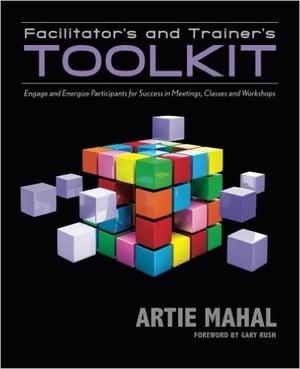
The purpose of this book is to provide frameworks, tools, and techniques to facilitate virtual or face-to-face meetings, lead workshops, and transfer knowledge through training. This book covers the various aspects of a facilitator’s role. The author presents many innovative ideas based on his experiences. It covers ways to:
- Engage and energize learners
- Use 35 handy facilitation tools
- Facilitate cross-cultural, virtual, and visual events
6. Design for Information – Isabel Meirelles
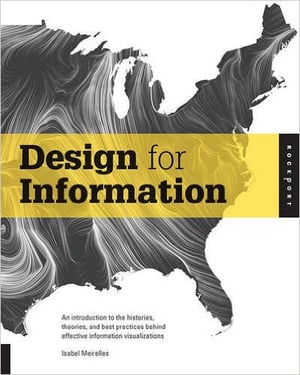
This book provides histories and deep analysis of many theories behind the different types of visualization. The main objective of this book is to understand the underlying principles that benefit the design process of visualizing content or information. The author offers an integrative approach for the visual presentation of content based on research, and this book is filled with wonderful examples like a visual symphony. It contains:
- Hierarchical graphics (trees)
- Relational structures (networks)
- Temporal structures (timelines and flows)
- Spatial structures (maps)
- Spatio-temporal structures
- Textual structures
7. About Face: The Essentials of Interaction Design – Alan Cooper
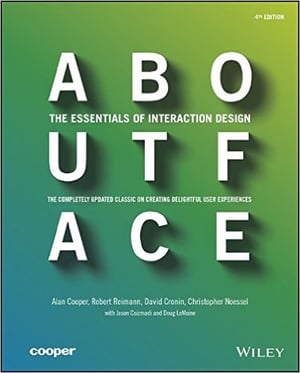
This book presents effective and practical tools for interactive design such as principles, patterns, and processes. About Face includes:
- The Updated Goal-Directed Design process
- High-level interaction principles that can be applied to contemporary interfaces, interactions, and product design methods
- Lower level and platform specific design i.e.,for mobile platforms and consumer electronics
8. Mastering Mobile Learning – Chad Udell and Gary Woodill
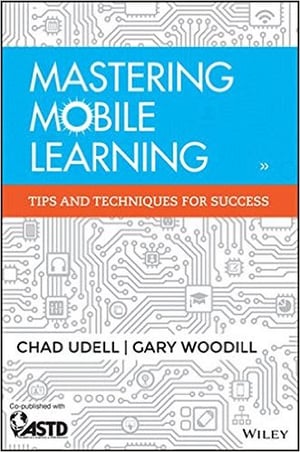
The authors capture their and others’ experiences for what you need to know to be successful with mobile learning. The book is organized into five parts and talks about:
- Mobile learning with a focus on Enterprise mobile learning
- Mobile learning strategies
- Practical details such as:
- A variety of mobile experiences
- The design and development processes
- Managing and delivering mobile learning projects
9. E-Learning Fundamentals – Diane Elkins and Desiree Pinder
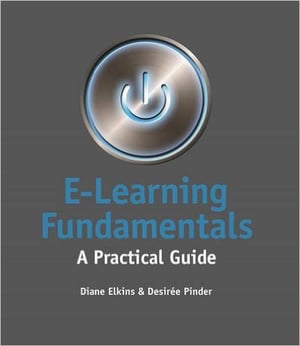
This ultimate roadmap covers the entire e-learning landscape.
This practical guide provides a broad overview of the e-learning process right from the start. It provides a base knowledge that will help you understand everything from the concepts to execution. This book will help you:
- Define e-learning and develop a strategy from both organizational and managerial perspectives
- Explore the design and development process of an e-learning course i.e., from analysis to evaluation
- Learn to develop a course using storyboards and you will also get practical advice, checklists, templates, etc.
10. Michael Allen’s Guide to E-Learning
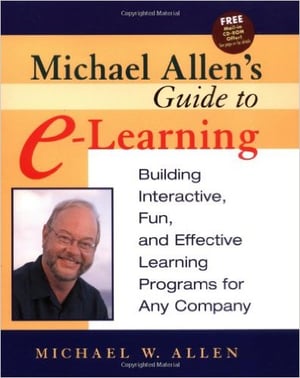
In this two-part book, Part-1 gives an overview with an observation of how the real costs of poor training are frequently overlooked and Part-2 deals with the design and application of the previously discussed principles. Simply put, Part-1 is the business perspective and Part-2 is the design perspective.
11. E-learning: Getting your Organization Ready
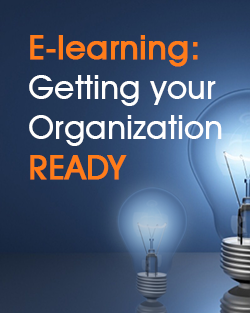
A step-by-step guide to implement eLearning in organizations
If you are considering moving your training programs online, this eBook is for you. It will provide a thorough understanding of how to approach, implement, and sustain e-learning in your organization. The eBook covers several aspects right from evaluating whether your organization is ready for e-learning to overcoming the barriers and choosing the right outsourcing partner.
Hope this list helps you narrow your search. Obviously there might be other books to choose from, but these are some really good, insightful works on designing and developing effective, immersive e-learning courses.
Do you have other interesting books? Which books would you like to read and why?
Please share with us through your comments.
Happy Reading!!




